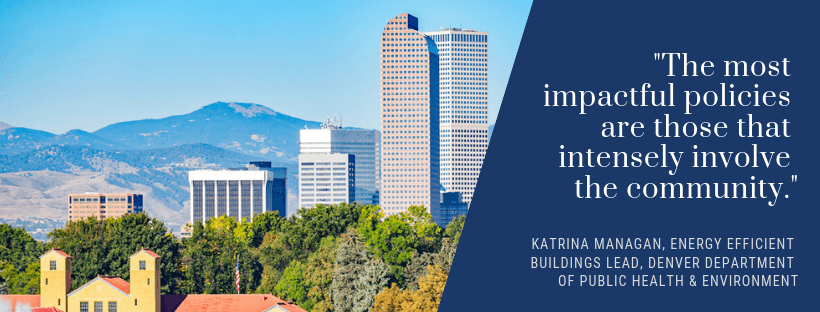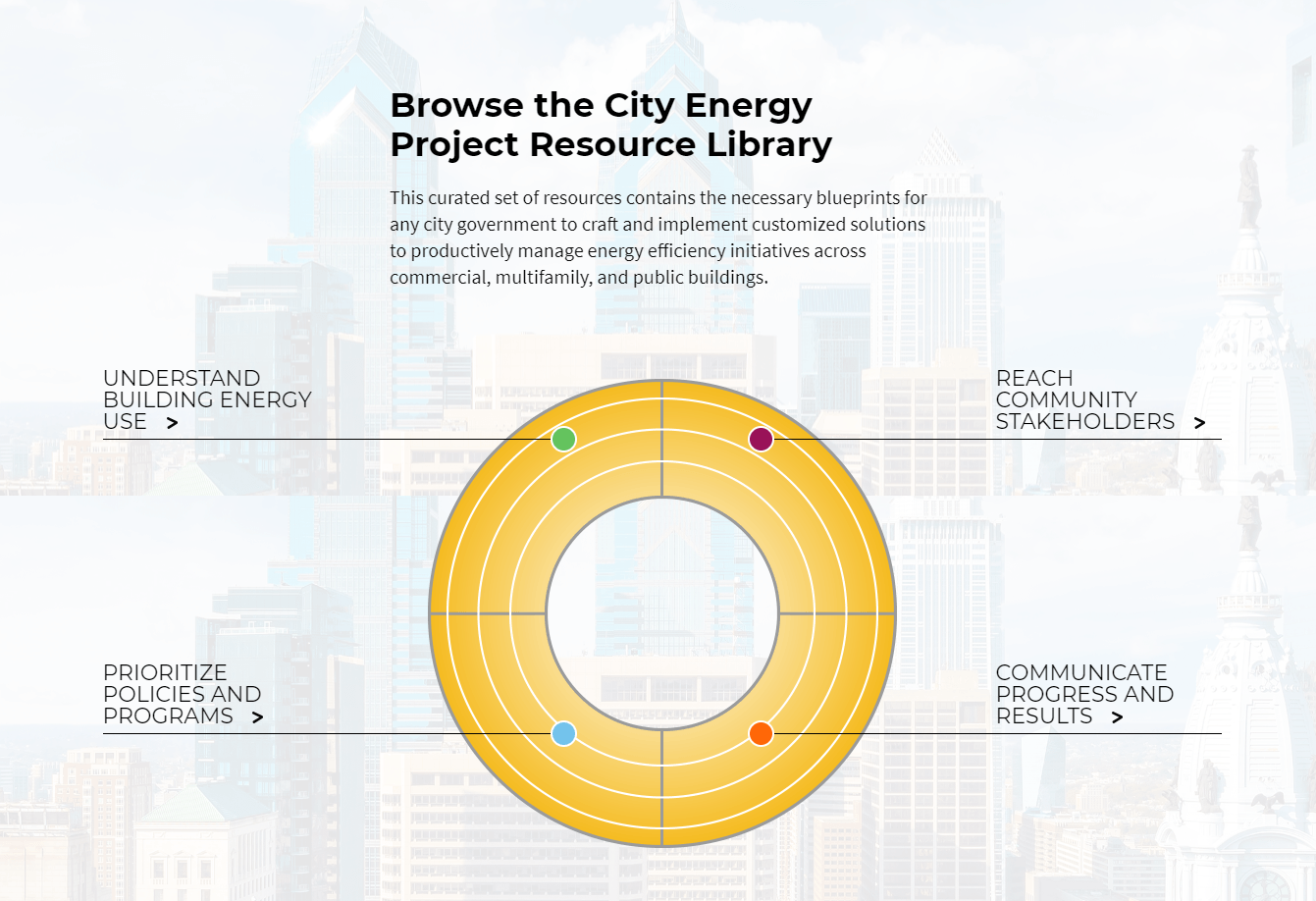What does it take to drive market transformation toward bigger, faster, deeper investments in energy efficiency? To figure this out, the City Energy Project, a national initiative from IMT and the Natural Resources Defense Council, embedded staff in 20 participating cities across the U.S. with a focus on boosting energy efficiency in buildings. These City Advisors help ensure that the energy efficiency efforts pursued by a city are customized to best meet local needs to maximize returns.
As the leader of the Energize Denver initiative in the City and County of Denver, Katrina Managan is bringing the commercial and multifamily real estate sector together with city and county government to affect big, efficient change.

What drew you to efficiency work?
Energy efficiency is a low-cost, high-return strategy to combat climate change. But, there are market barriers that challenge development in this sector. I enjoy working to solve those types of puzzles, and that’s how I was drawn to energy efficiency work.
What brought you to leading efficiency initiatives for the City and County of Denver?
I began work as a City Advisor with the City of Denver five years ago. Before that I researched building efficiency market growth strategies at Johnson Controls and advocated at the federal level on energy and climate policy for eight years. I also have an MBA from IE Business School in Madrid, where I studied as a Fulbright Scholar.
What excited you most about the City Energy Project?
The City Energy Project provided a great opportunity to collaborate with other cities. For example, while developing our building help center, the City of Denver collaborated with Amy Jewel in Chicago. I spoke with Amy many times about how Chicago runs its benchmarking center and how it developed its building scorecard system. It was helpful to have her advice as we integrated lessons learned in Chicago to improve and develop those portions of our own program.
What were some of the lessons you learned in your work as a City Advisor?
Good policy takes time. As we went through the stakeholder process, I learned that the most impactful policies are those that intensely involve the community that will be regulated in the development of that policy. City government staff should not assume they know what policies will best achieve the City’s goals, nor the best way to implement those policies for maximum impact. Extensive stakeholder engagement to shape policies and their implementation result in better policy and greater results.

What advice would you have for other cities interested in becoming more sustainable?
When it comes to stakeholder engagement, don’t assume that you have the answers. Every person you meet will come with a slightly different perspective. When you meet with a stakeholder, start from the place of the other person, and listen to what they think the answers are. For example, our local real estate community has great ideas.
Once you do have a plan, make sure to set goals and check in with your stakeholders as you continue.
What does your team look like? What does your work look like as a City Advisor?
I serve on the climate change team within the City and County of Denver’s Department of Public Health & the Environment. My focus is on energy efficiency in commercial and multifamily buildings.
For five years I was the only city staff person working on Energize Denver, with the support of a part time intern. I now lead a team of myself, plus two staff and our intern as the Climate Smart Buildings Team Lead. We also have a contract with Overlay Consulting to provide much of the implementation of the benchmarking requirement including supporting a data management system, customer relationship management system, call and email support for building owners and managers, mapping of the data, and scorecards for building owners and managers.
What has been the most rewarding experience you’ve had as a City Advisor?
I’m very glad to have been able to work on innovative policy such as the City and County of Denver’s benchmarking requirement and to lead its implementation after passage. Our benchmarking compliance rate, which is over 90 percent. And, even more importantly, energy use was cut 4.5 percent by the 1,161 buildings that reported in both 2016 and 2017. Those owners and tenants saved $13.5 million in 2017. I am also very proud of my work leading the Green Roofs Review Taskforce in the development of Denver’s innovative Green Building Ordinance.
 The City Energy Project is a national initiative to create healthier, more prosperous American cities by improving the energy efficiency of buildings. The pioneering actions taken by the 20 participating cities are now distilled in a cured yet comprehensive City Energy Project Resource Library, a must-use tool for any jurisdiction on how to leverage energy efficiency to reach ambitious climate, economic, and social goals. Learn more at cityenergyproject.org.
The City Energy Project is a national initiative to create healthier, more prosperous American cities by improving the energy efficiency of buildings. The pioneering actions taken by the 20 participating cities are now distilled in a cured yet comprehensive City Energy Project Resource Library, a must-use tool for any jurisdiction on how to leverage energy efficiency to reach ambitious climate, economic, and social goals. Learn more at cityenergyproject.org.
